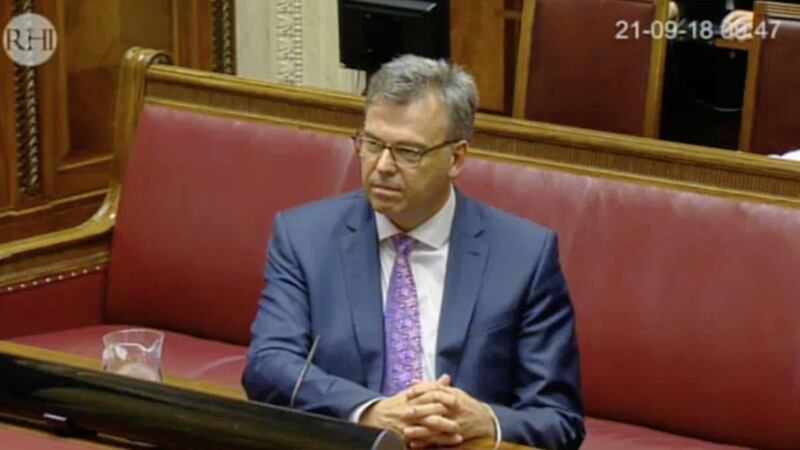THE chief executive of Invest NI has accepted there was a "missed opportunity" for the public body to warn Stormont of problems with the RHI scheme.
Alastair Hamilton attended the RHI inquiry after it heard how a heating expert had flagged with Invest NI flaws in the scheme within months of its launch.
The inquiry heard on Thursday how consultant Alastair Nicol's reports sent to Invest NI for its clients repeatedly identified flaws in RHI.
But the concerns were not referred to the Department of Enterprise, Trade and Investment (Deti), which was in charge of the RHI scheme.
Invest NI is an arms-length public body which is part of Deti, a Stormont executive department now known as the Department for the Economy.
Mr Hamilton yesterday accepted that Invest NI "had evidence in reports that clearly showed" the RHI scheme was not operating as intended, adding: "Clearly there was a missed opportunity here."
"There was a missed opportunity and one that I am accountable for and I understand that," he said.
The inquiry previously heard suggestions that Invest NI would have been better suited than Deti in delivering the non-domestic RHI scheme because of its business community links.
But Mr Hamilton said Invest NI senior management only became aware of RHI "probably somewhere into 2014-15" – several years into the botched scheme's operation.
"I think there was a capability that wasn't tapped into," he said.
In some terse exchanges, Mr Hamilton faced questions over whether Invest NI could have done more to help the RHI scheme's development and operation.
Inquiry chair Sir Patrick Coghlin branded the lack of senior communication between Invest NI and Deti as a "complete breakdown".
The inquiry also heard about Mr Hamilton's former role as a special adviser (Spad) for the DUP.
Mr Hamilton, who was recruited when former DUP leader Ian Paisley was first minster, said his job title was "chief economic and business adviser to the first minister".
He said he was interviewed by "the first minister and his son", and the interview happened before Ian Paisley Jnr became a junior minister in the executive.
Mr Hamilton, who is not a member of any political party, said he is supportive of the role of Spads when used properly to provide advice to ministers.
The RHI inquiry was set up after the subsidy scheme – which was launched in 2012 and aimed at encouraging the use of eco-friendly wood pellet boilers – ran significantly over budget due to a lack of cost controls.
The political fallout over the scandal led to the executive's collapse and the continued Stormont deadlock.
Later, the inquiry heard from Janet McCollum, former chief executive of the poultry production giant Moy Park, who last gave evidence in June.
Poultry farmers make up a significant proportion of RHI claimants, with most supplying Moy Park.
Ms McCollum said she now accepts the poultry giant received an indirect financial benefit from RHI.
The inquiry heard how Moy Park was "ramping up" efforts to get poultry farmers signed up to RHI before cost controls were introduced in autumn 2015, and before the scheme's closure to new applicants in early 2016 – and that the firm also lobbied Stormont to delay its closure.
It heard of a meeting involving Moy Park, then DUP minister Mervyn Storey and party Spad Andrew Crawford in January 2016.
Ms McCollum said she "specifically" recalled Mr Crawford telling them the RHI scheme would soon be closing. Mr Crawford has denied tipping off Moy Park about RHI's closure.








